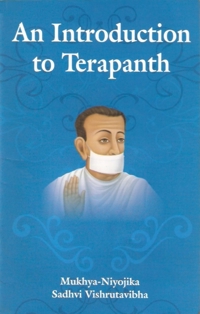One of the highest spiritual values in Indian religious tradition is self-restraint.
Initiation into asceticism is one of the most sublime symbols of complete self-restraint. There is an ideal system of initiation in Terapantha. Only the Acharya has than right to initiate. Exceptionally other monks and nuns are allowed to initiate some one only with the explicit permission of the Acharya. Acharya Bhikshu gave special attention to the system of initiation.
“Do not initiate just anyone only to increase the number but initiate only those who are really worthy of being initiated who have really developed detachment to sensuality and worldly pleasures, and also who have attained the right world-view.”
Whosoever wishes to be initiated in the Terapantha Sangha has to first undergo a special training course. Until relatively recently, there was no special arrangement for the preparation of an ascetic aspirant in Terapantha. However, under the patronage of Acharya Shri Tulsi, the Terapanthi Mahasabha has founded an unique institution called “Parmarthik Shiksan Sanstha” for this noble purpose in V.S. 2005(1949A.D.). An aspirant would typically engage himself in study at this Institute for a period of about six or seven years. The training received is both of an academic and spiritual nature, designed to determine whether or not an individual is ready for leading life of complete renunciation. After undergoing a through training, when the ascetic-aspirant is considered fit for initiation into ascetic life, the initiation ceremony takes place in the presence of thousands of people and with the duly written consent of the guardians and the family members. To date, approximately 2000 individuals have been initiated in the Terapantha. In addition, more than sixty mumukshu are currently under training in Parmarthik Shiksan Sanstha. At present, there are more than 550 nuns and more than 150 monks in Terapantha Sangha, behinds more than 100 Samanis. After initiated, an ascetic has to observe the ascetic conduct for the whole life. However, in extremely rare cases, one may leave the order, if he or she finds it impossible to observe the principles, or if the Acharya expels him or her from the Sangha after finding unfit for the ascetic life or for the breach of the discipline of the order.
 Sadhvi Vishrut Vibha
Sadhvi Vishrut Vibha

